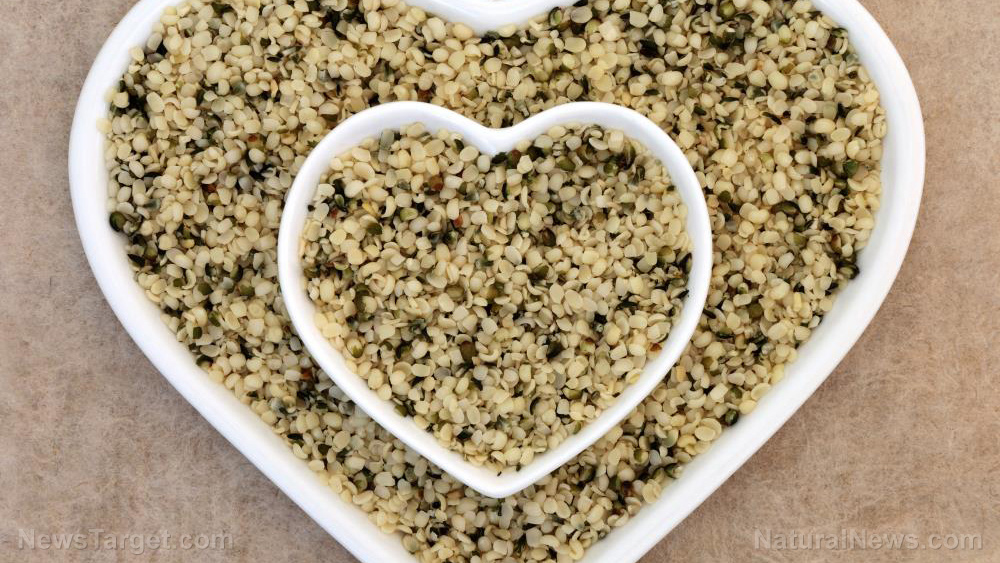Eating more high-fiber foods can reduce food allergies
01/29/2019 / By Michelle Simmons

Suffering from food allergies? Why not try a high-fiber diet? A study has shown that eating more foods rich in fiber can help reduce food allergies and their side effects.
In conducting the study, researchers from Monash University and Deakin University in Australia and VU University Medical Center in the Netherlands bred mice to have an artificially-induced peanut allergy. Then, they fed them with a high-fiber diet to produce a healthy population of gut bacteria. After that, they gave the bacteria to a group of germ-free mice that had no gut microbes of their own.
The researchers saw that the second group of mice was protected against allergy, despite not having consumed any fiber directly. This group of mice displayed a less severe response when exposed to peanuts. The researchers explained that the transfer of the bacteria reshaped their microbiota.
“My theory is that the beneficial bacteria that predominate under consumption of fiber promotes the development of regulatory T cells, which ensures the bacteria have a healthy, anti-inflammatory system to thrive in,” says Laurence Macia, co-senior author on the study and an immunologist at Monash University.
The study, which was published in the journal Cells Reports, found a direct link between the development and persistence of food allergies and gut bacteria health. Gut bacteria release a certain fatty acid called short-chain fatty acids (SCFAs) in the presence of fiber. SCFAs promote the healthy development of regulatory T cells and help regulate gut inflammation, which results in a reduction in allergic reactions.

The researchers also saw the same anti-inflammatory effect with an artificial administration of the byproducts of these SCFAs. For three weeks, they gave groups of allergy-induced mice a water supply that was enriched with short-chain fatty acids before their exposure to peanuts. They saw that the mice had decreased response to allergy, even when a “protected” microbiota was missing.
With these findings, the researchers concluded that a deficiency in fiber in the gut could be a primary contributor to many allergy cases today. They say that higher incidents of food allergies in recent years are linked to diet and gut microbiome. In addition, today’s diet has become higher in sugar and fat, and lacks foods rich in fiber. (Related: Are your food allergies a result of lifestyle choices? Nearly half of people experience their first reactions after reaching adulthood.)
More reasons to eat fiber-rich foods
To further encourage you to eat more fiber-rich foods, here are some of the health benefits that fiber provide:
- Fiber aids in weight loss.
- Fiber helps you maintain a healthier weight over time.
- Fiber lowers your risk of Type 2 diabetes.
- Fiber protects your heart against diseases.
- Fiber helps ward off cancer.
- Fiber lowers mortality risk.
- Fiber aids in digestion.
- Fiber helps detoxify the body.
- Fiber helps maintain bone density.
Adding fiber-rich foods to your diet
There are many foods with high fiber content, which makes it easier for you to include to your diet. Some of the best fiber-rich foods to eat are beans, legumes, artichokes, avocados, broccoli, Brussels sprouts, squash, and turnips. You can also get fiber from fruits, such as Asian pears, blackberries, coconut, figs, and raspberries. Chia seeds, quinoa, almonds, flax seeds, and walnuts are also good sources of fiber.
Read more news stories and studies on food rich in fibers and other healing foods by going to FoodIsMedicine.com.
Sources include:
Submit a correction >>
Tagged Under:
allergies, alternative medicine, fiber, fiber-rich foods, food allergies, food allergy, food cures, natural medicine, remedies
This article may contain statements that reflect the opinion of the author





















